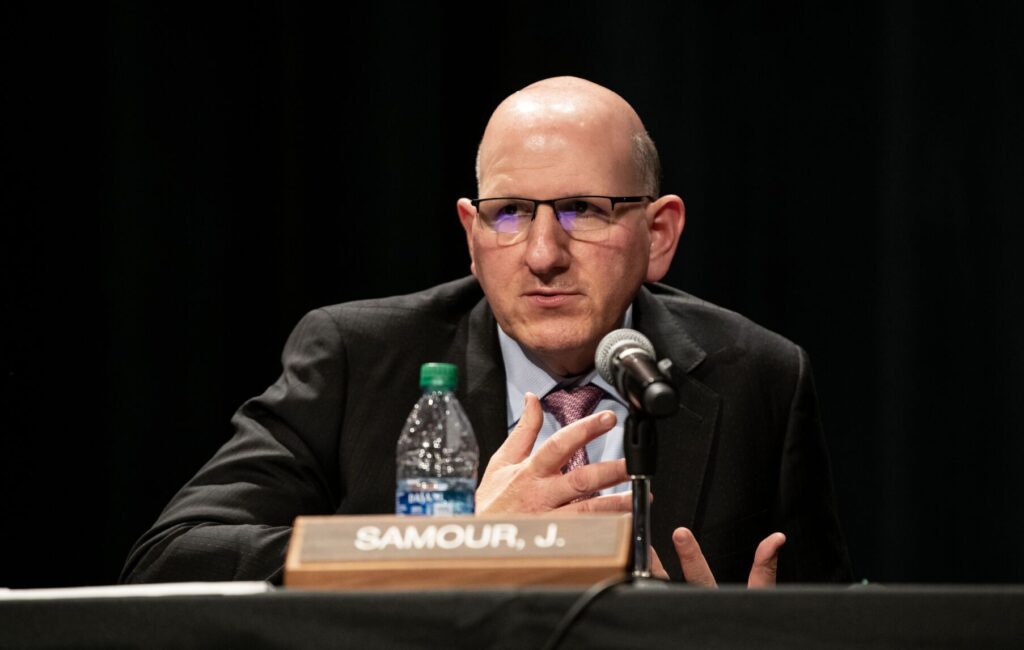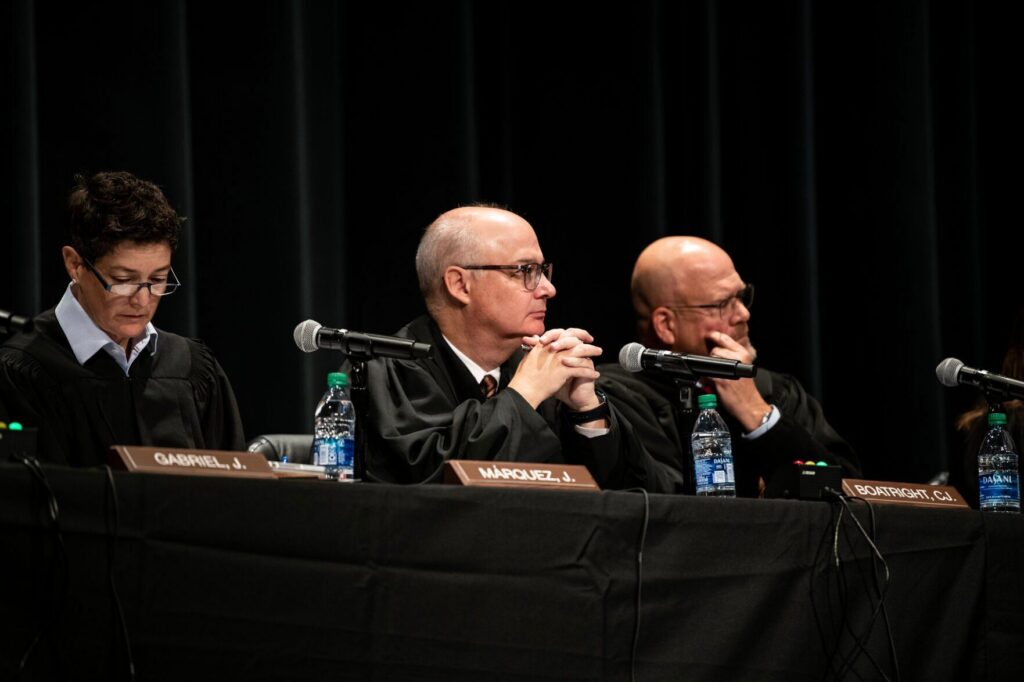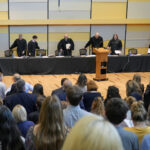Colorado Supreme Court censures ex-Adams County judge who repeatedly committed misconduct
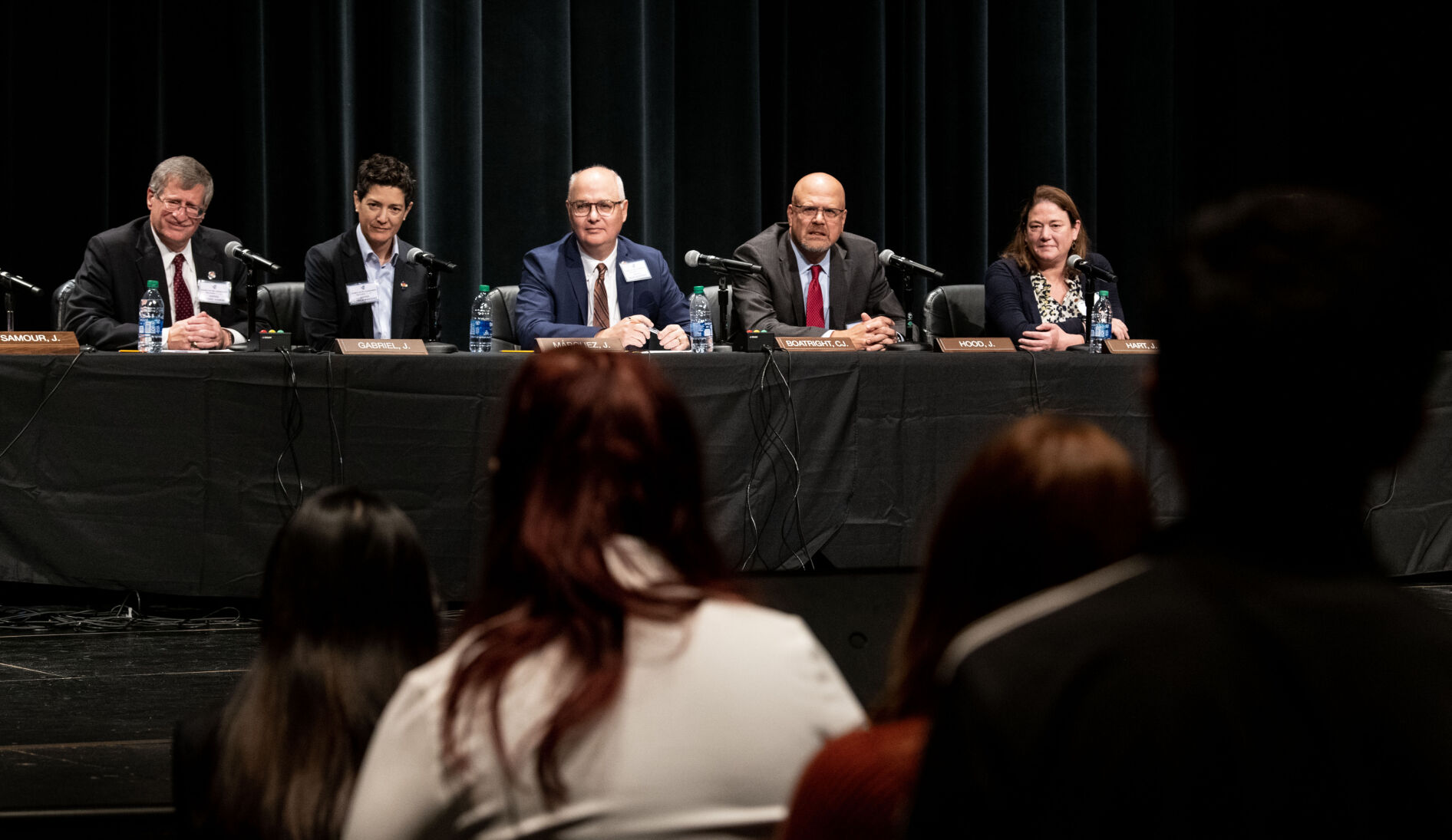
The Colorado Supreme Court on Monday publicly censured ex-Adams County District Court Judge Robert W. Kiesnowski Jr., who resigned last summer in the face of a misconduct investigation and yet continued to misbehave through his final weeks in office.
While still a judge, Kiesnowski engaged in the unauthorized practice of law when he acted as the attorney for his brother-in-law, who was being interrogated by a criminal investigator as the suspect in a domestic violence incident. In doing so, Kiesnowski also attempted to undermine the credibility of the alleged victim and influence the criminal investigation.
“Kiesnowski’s representation of his brother-in-law and abuse of his judicial position for the sake of furthering his brother-in-law’s interests both undermined his judicial office and the public’s confidence in the judiciary,” the Supreme Court wrote in an unsigned March 4 opinion.
Previously, three trial judges, sitting as special masters, found Kiesnowski’s conduct worthy of censure and slammed Kiesnowski for remaining defiant about his rule breaking.
Kiesnowski “has shown no remorse. He has shown no acknowledgement of his violation of the canons,” they wrote in September. “There is no other more severe sanction available, or it is likely the Special Masters would recommend the same.”
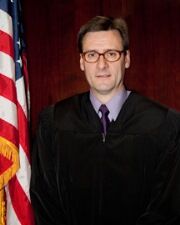
Kiesnowski’s disciplinary case was unusual, in that he asked the Supreme Court to consider his attempts to stay within the bounds of the code of conduct. Although judges generally may not practice law, they can give free legal advice to family members – so long as they do not act as a relative’s lawyer “in any forum.”
Kiesnowski claimed his research led him to believe the counsel he gave to his brother-in-law during a police interrogation was not the kind of “forum” the rule had in mind.
On June 1, 2023, Jesse Lee Vaughn was in a Lakewood hospital recovering from injuries he sustained in Morgan County. An investigator wanted to interview Vaughn, who now stands accused of felony assault. Kiesnowski found out about the request, called the investigator and identified himself as a judge. He told the investigator what Vaughn had relayed to him about the domestic violence encounter.

The next day, the investigator, Jeff Huston, arrived at the hospital to speak with Vaughn, who in turn requested Kiesnowski’s advice. Kiesnowski concluded he would not violate any conduct rules by representing his brother-in-law, so he sat in on the interrogation.
In the process, Kiesnowski invoked the Fourth Amendment to stop Huston from searching Vaughn’s phone, raised his brother-in-law’s right against self-incrimination and instructed Vaughn to answer that “you do not recall.” Kiesnowski also inserted his own views about the alleged victim, calling her a “total disaster,” “erratic” and claiming she had a pattern of falsely accusing Vaughn.
Kiesnowski’s representation of Vaughn happened weeks before Kiesnowski was set to step down as part of an agreement in another disciplinary case. Kiesnowski admitted to retaliating against a judicial assistant, going so far as forbidding her to “socialize” with other staff and making false accusations about her to another judge who eventually hired her.
As a sanction handed down privately in March, Kiesnowski agreed to resign on July 1. Then, disciplinary authorities found out about the hospital interrogation.
“This case is about the persistent abuse of the status of judicial office,” Jeffrey M. Walsh, special counsel for the Colorado Commission on Judicial Discipline, wrote in advance of a hearing on Kiesnowski’s second disciplinary case. “In Judge Kiesnowski’s prior disciplinary case, he exploited his position as a judge to retaliate against a subordinate. … In the present case, Judge Kiesnowski exploited his position to try to benefit his brother-in-law.”
Kiesnowski countered that he was in an “untenable” situation – trying to advise his relative while also facilitating the law enforcement investigation.
“Former Judge Kiesnowski struggled as he tried to make the best possible decision, wrote attorney Craig L. Truman.
A panel of three special masters held a hearing, consisting of Chief Judge Julie Hoskins of the Weld County District Court, Pueblo County District Court Judge Tim O’Shea, and Denver District Court Judge Kandace C. Gerdes.

The special masters found Kiesnowski’s behavior amounted to misconduct, and they did not care for his attitude during the proceedings.
“His complete disavowal of any wrongdoing in the private censure, to which he stipulated to the underlying, supporting facts, is offensive to the Special Masters,” they wrote. “Respondent has not evidenced any effort to change or modify his pattern of abusing the status of judicial office, as shown by the fact that just three months after being disciplined and being forced to resign, he engaged in the same general form of misconduct.”
They added Kiesnowski did not admit to any wrongdoing in the current case, even though he attempted to influence a criminal investigation as a sitting judge.
“His insertion of himself into a serious case and in such a major way, not only would raise eyebrows, it actually did, which is why a complaint was filed,” the special masters wrote.
Kiesnowski appealed his censure to the Supreme Court, repeatedly claiming his “misunderstanding” of the rule happened in the “hurry scurry,” requiring Kiesnowski to make “quick decisions … under pressure” to prevent an investigator’s “ambush” of his brother-in-law.
The Supreme Court was unconvinced.
“Kiesnowski was well aware that he could have simply directed his brother-in-law to refuse the interview,” the justices wrote. Instead, Kiesnowski’s “repeated use of his title resulted in favorable treatment: The investigator testified that Kiesnowski’s status as a judge increased his credibility and led the investigator to conduct the interview in a more deferential manner.”
Chief Justice Brian D. Boatright did not participate in the appeal.






